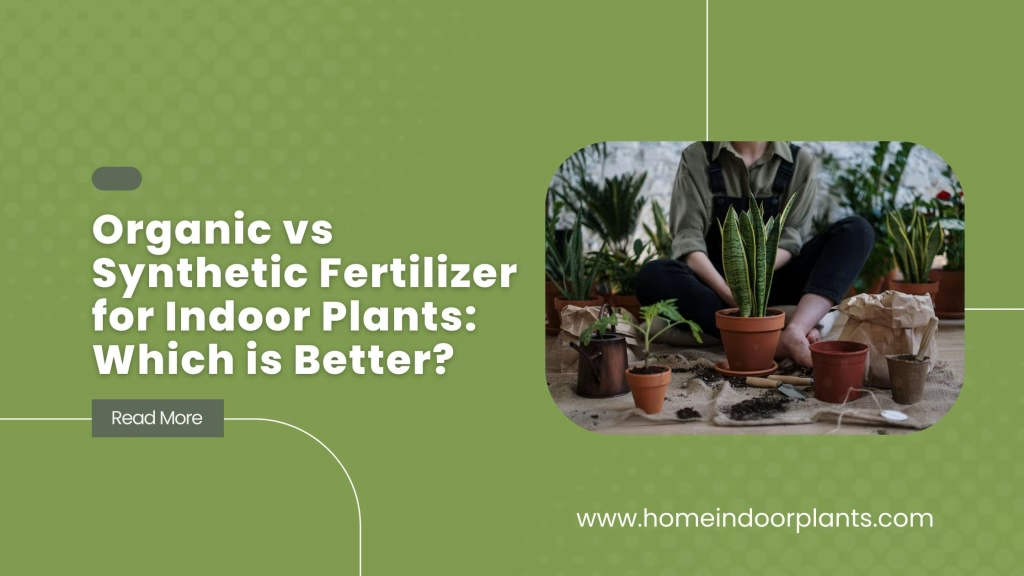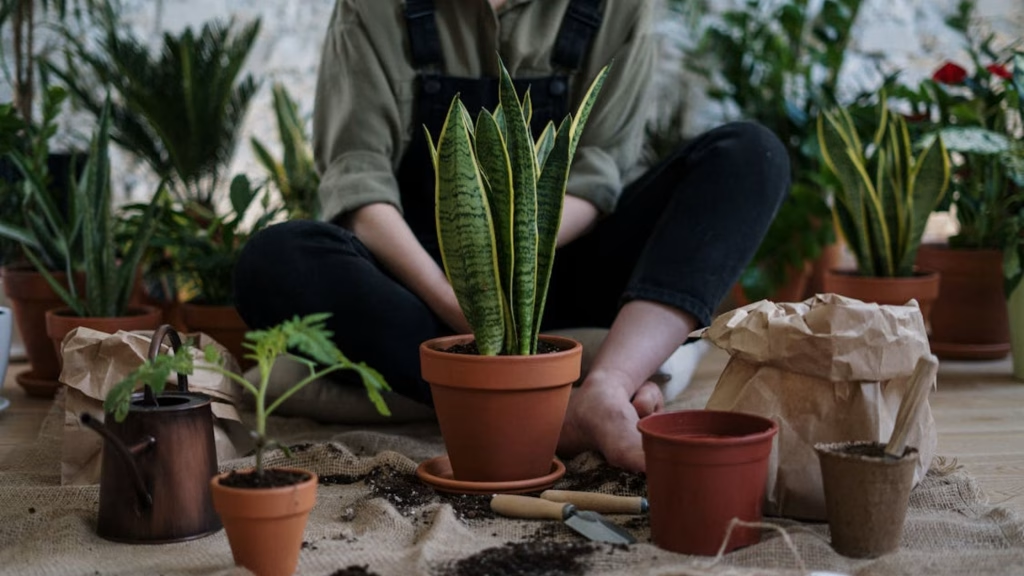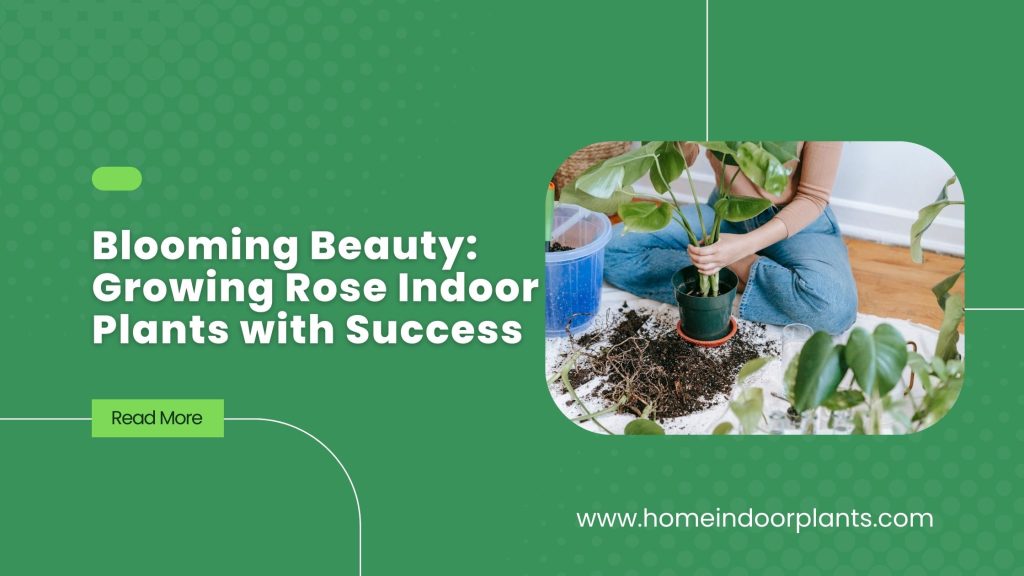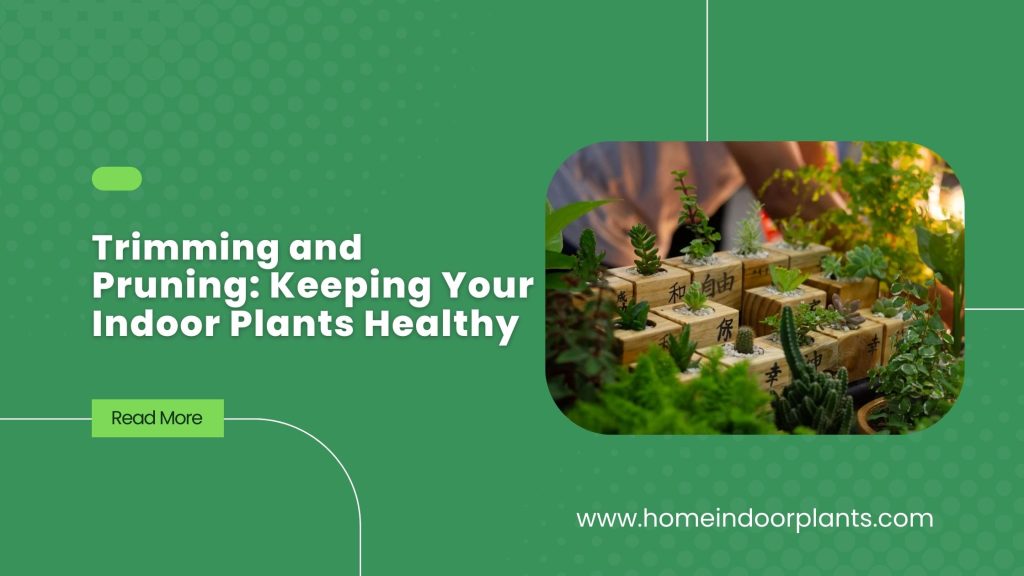Table of Contents
Organic vs Synthetic Fertilizer for Indoor Plants: Which is Better?
As you nurture your indoor plants, you’re likely no stranger to the dilemma of choosing the right fertilizer. With so many options on the market, it’s easy to get caught up in the debate between organic and synthetic fertilizers. But which one is truly better for your plants? As you weigh the pros and cons, consider this: the fertilizer you choose can have a profound impact on your plant’s health, the environment, and even your well-being. In this post, we’ll probe into the world of organic and synthetic fertilizers, exploring the benefits and drawbacks of each, so you can make an informed decision that’s best for you and your indoor oasis.

Key Takeaways:
- Organic fertilizers provide plants with natural nutrients that promote healthy growth and development, whereas synthetic fertilizers contain artificial chemicals that can harm plants and the environment.
- Organic fertilizers foster the growth of beneficial soil microbes, which help break down nutrients and make them available to plants, whereas synthetic fertilizers can kill off these microbes, leading to soil degradation.
- Organic fertilizers are a more sustainable option as they are biodegradable, non-toxic, and environmentally friendly, whereas synthetic fertilizers contribute to soil pollution, water contamination, and climate change.
- Organic fertilizers release nutrients slowly, allowing plants to absorb them as needed, whereas synthetic fertilizers provide a quick burst of nutrients that can cause over-fertilization and damage to plants.
- While organic fertilizers may be more expensive and require more effort to apply, they provide long-term benefits and promote healthy plant growth, whereas synthetic fertilizers may be cheaper and easier to use but can have negative consequences in the long run.
The Benefits of Organic Fertilizers
While choosing the right fertilizer for your indoor plants, you may wonder what sets organic fertilizers apart from their synthetic counterparts. The answer lies in the numerous benefits they offer.
Natural and Non-Toxic
To ensure your plants receive only the good stuff, organic fertilizers are made from natural ingredients like animal waste, compost, and plant matter. This means you can rest assured that your plants won’t be exposed to harsh chemicals or toxins that can harm them or even you.
Promotes Healthy Soil Microbes
The key to a thriving indoor garden lies in the soil, and organic fertilizers play a crucial role in promoting healthy soil microbes. These beneficial microorganisms help break down nutrients, making them readily available to your plants.
Soil microbes are the unsung heroes of your indoor garden. They not only facilitate nutrient uptake but also help fight off plant diseases and pests. By using organic fertilizers, you’re creating an environment that encourages these microorganisms to flourish, leading to stronger, healthier plants that require less maintenance. As you nurture your soil, you’ll notice a significant improvement in your plants’ overall health and resilience.
The Drawbacks of Organic Fertilizers
One of the main reasons you might be hesitant to switch to organic fertilizers is the potential drawbacks they present.
Higher Cost
The biggest obstacle for many people is the higher cost associated with organic fertilizers. You’ll often pay more for organic options compared to synthetic ones, which can be a significant factor if you’re on a budget or have a large number of plants to fertilize.
Slower Release of Nutrients
Fertilizers made from natural materials tend to release their nutrients more slowly, which can be a drawback if your plants need a quick boost.
To understand why this is the case, consider how organic fertilizers work. They rely on microorganisms in the soil to break down the organic matter and release the nutrients, which can take time. This slower release rate means you may not see immediate results, and your plants might not get the nutrients they need as quickly as they would with synthetic fertilizers. While this slower release can be beneficial in the long run, it may not be ideal for all situations.
The Benefits of Synthetic Fertilizers
Your indoor plants need nutrients to thrive, and synthetic fertilizers can provide them quickly and efficiently. While they may not be the most popular choice among environmentally conscious gardeners, synthetic fertilizers have their advantages.
Quick Results
Any indoor gardener looking for rapid growth and vibrant blooms will appreciate the speedy effects of synthetic fertilizers. These products typically contain high concentrations of nitrogen, phosphorus, and potassium, which are absorbed quickly by your plants, leading to rapid growth and development.
Cost-Effective
Any budget-conscious gardener will appreciate the affordability of synthetic fertilizers. They are often cheaper than organic alternatives, making them a more accessible option for those who want to give their indoor plants a nutritional boost without breaking the bank.
Understanding the cost-effectiveness of synthetic fertilizers is crucial. While they may be cheaper upfront, you’ll need to consider the long-term costs of using these products. Synthetic fertilizers can lead to soil degradation and water pollution, which may require additional investments in soil remediation and water filtration systems. However, if you’re looking for a short-term solution to give your plants a quick boost, synthetic fertilizers can be a cost-effective option.
The Drawbacks of Synthetic Fertilizers
Keep in mind that synthetic fertilizers may provide quick results, but they come with a host of negative consequences that can harm your plants, the environment, and even your health.
Environmental Concerns
The production and use of synthetic fertilizers contribute to greenhouse gas emissions, air and water pollution, and soil degradation. When you use these fertilizers, you’re inadvertently supporting an industry that’s harming the planet.

Can Burn Plant Roots
With synthetic fertilizers, you risk burning your plant’s roots, which can lead to stunted growth, yellowing leaves, and even plant death.
Drawbacks like root burn occur because synthetic fertilizers are highly concentrated and can’t be fully absorbed by the plant. The excess chemicals then build up in the soil, causing damage to the roots and microorganisms. This can create a vicious cycle where your plant becomes dependent on the fertilizer, making it difficult to thrive without it. As you continue to use synthetic fertilizers, you may notice your plant’s health declining, despite your best efforts to care for it.
Conclusion for Organic vs Synthetic Fertilizer
To wrap up, when it comes to nurturing your indoor plants, the choice between organic and synthetic fertilizers ultimately depends on your values and priorities. If you’re looking for a more natural, environmentally friendly approach that promotes soil health and biodiversity, organic fertilizers are the way to go. On the other hand, if you’re seeking quick results and don’t mind the potential environmental drawbacks, synthetic fertilizers might be your best bet. Whatever your decision, remember that you have the power to create a thriving indoor ecosystem that not only beautifies your space but also supports your well-being.
FAQ
Q: What is the main difference between organic and synthetic fertilizers for indoor plants?
A: The main difference between organic and synthetic fertilizers lies in their composition and how they affect the soil and plants. Organic fertilizers are made from natural materials such as animal waste, compost, and plant matter, which release nutrients slowly and promote healthy soil microbiology. Synthetic fertilizers, on the other hand, are manufactured using chemical compounds and provide instant nutrients to plants but can harm soil health and the environment in the long run.
Q: Are organic fertilizers more expensive than synthetic fertilizers?
A: Generally, organic fertilizers are more expensive than synthetic fertilizers. However, the cost difference is often outweighed by the long-term benefits of using organic fertilizers, such as improved soil health, increased crop yields, and reduced environmental impact. Additionally, organic fertilizers tend to be more concentrated, so you may need to use less of them, which can help offset the higher cost.
Q: Do organic fertilizers provide slower results compared to synthetic fertilizers?
A: Yes, organic fertilizers typically provide slower results compared to synthetic fertilizers. This is because organic fertilizers release nutrients slowly as they break down, whereas synthetic fertilizers provide an instant boost of nutrients. However, the slow release of nutrients from organic fertilizers promotes healthy plant growth and development, while synthetic fertilizers can cause rapid growth that may not be sustainable in the long run.
Q: Can I use both organic and synthetic fertilizers for my indoor plants?
A: While it’s technically possible to use both organic and synthetic fertilizers, it’s not recommended. Synthetic fertilizers can cancel out the benefits of organic fertilizers and even harm the soil microbiology. If you’re transitioning from synthetic to organic fertilizers, it’s best to start with a soil test to determine the nutrient levels in your soil and then choose an organic fertilizer that meets your plants’ needs.
Q: Are organic fertilizers safer for my pets and children?
A: Yes, organic fertilizers are generally safer for pets and children compared to synthetic fertilizers. Organic fertilizers are made from natural materials and are biodegradable, which reduces the risk of toxicity and environmental harm. Synthetic fertilizers, on the other hand, can contain harmful chemicals that can be toxic if ingested or inhaled. If you have pets or children who may come into contact with your indoor plants, organic fertilizers are a safer choice.

